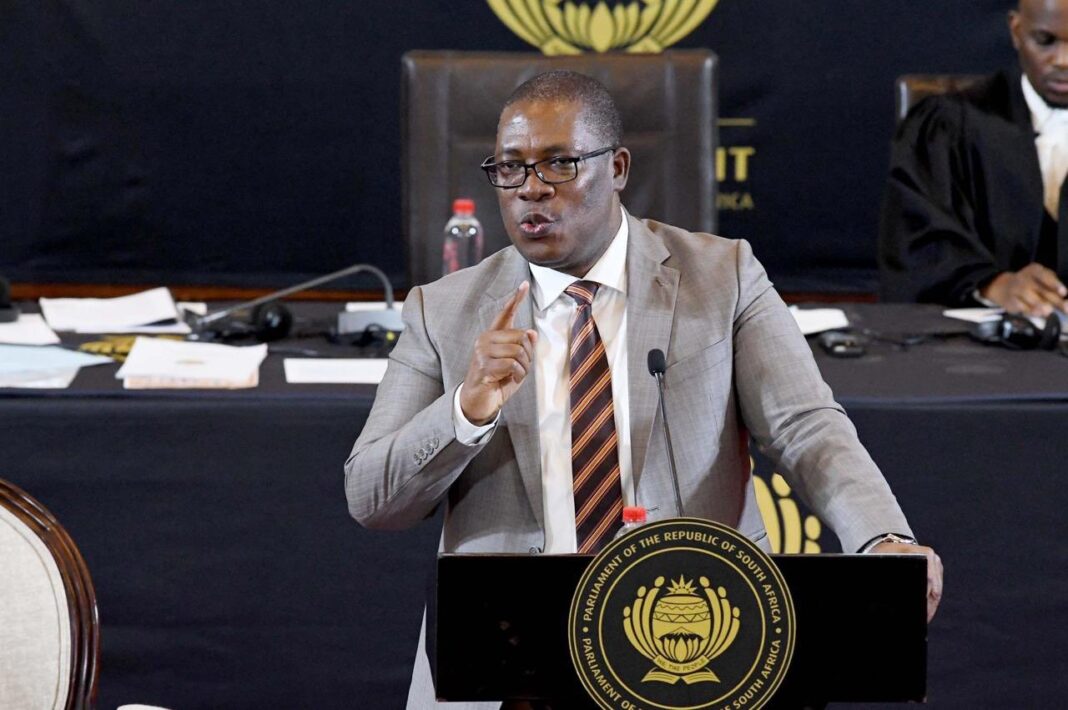Johnathan Paoli
Gauteng Premier Panyaza Lesufi has called upon President Cyril Ramaphosa to sign into law, the contentious Basic Education Laws Amendment bill.
Lesufi spoke during the parliamentary debate on President Ramaphosa’s Opening of Parliament Address (OPA) at the Cape Town City Hall on Friday and reminded the President of the urgent need to finalise the passing of the legislation.
However, Lesufi’s view of the bill is in stark contrast to newly-elected Basic Education Minister Siviwe Gwarube who said on Tuesday that she intends requesting Ramaphosa to halt the signing of the bill and send it part to Parliament for re-evaluation.
Gwarube said some of the beneficial aspects of the bill should be retained, while simultaneously addressing concerns about local authority empowerment.
“I do not think it is wise to throw the entire bill out with the bath water. I think there are commendable aspects within the bill which we can keep but there are certain aspects which do disempower local authorities on certain aspects,” Gwarube said.
The bill proposes changes to the South African Schools Act and seeks to vest authority in the Education Department instead of school governing bodies (SGBs) when it comes to determining a school’s language policy and curriculum, compulsory schooling from Grade R, and the prohibition of corporal punishment, initiation practices and the expulsion of pregnant learners.
The bill was passed in the National Assembly in May this year, before the end of the 6th administration.
Lesufi called upon both the president as well as the 7th administration to adhere to the drive towards transformation, and not exacerbate the challenging situation schools across the province have been experiencing since the dawn of the democratic dispensation.
“All our children must be in the same classroom and taught by the same teacher. What is wrong with that particular proposal? And that the language of teaching must incorporate all twelve languages, there must be no language that is excluded. What’s wrong with that particular proposal?” he said.
However, Gwarube is not alone in her reservations about the passing of the bill. ActionSA also welcomed her intention to stop the finalisation of the bill saying it was necessary to reconsider it as it was fundamentally flawed on certain considerations.
ActionSA Chief Whip Lerato Ngobeni said her party would fight to ensure that the bill, if referred back to parliament, reflected the substantive contribution and necessary amendments to address the real deficiencies that led to the decline of the country’s educational system.
“The Minister’s communicated intention comes as a relief following the stubborn posture taken by the ANC in the 6th administration, who were hell-bent on pushing through the legislation which undoubtedly would only serve to compound the challenges by introducing a series of proposals that lack coherence and fail to align with the actual needs and realities of our educational landscape,” Ngobeni said.
Some of her concerns could be found in the “ill-thought-out” introduction of compulsory Grade R, and the outdated use of the Socio-Economic Impact Assessment which did not adequately estimate fiscal and economic impact of the bill, she said.
INSIDE EDUCATION



